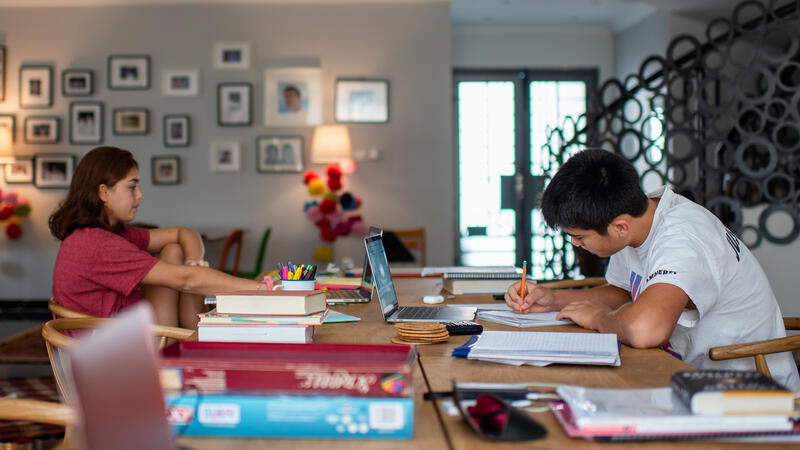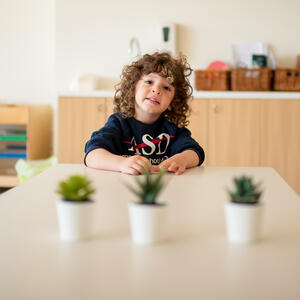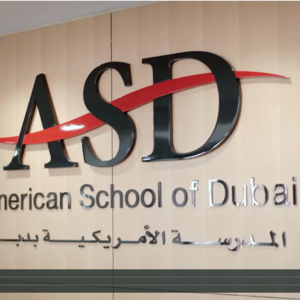
“L’essentiel est invisible pour les yeux.”
Mr. Rogers, the education pioneer, had this quote hanging in his Pittsburg studio. He spent his life searching for what was most essential. In his time, it was a radical concept to truly listen to and empathize with a child. Today, it’s commonplace and deemed critical to include their voice and feelings in their development.
We are living in the most unusual period we have ever experienced, where feelings and emotions often feel more important than academics. The social isolation, the loss of the familiar and routine, the sudden illness of friends and loved ones, and the distressing economic effects of the coronavirus pandemic have taxed every single one of us. We are seeing the best and sometimes the worst versions of ourselves, and there is no surfeit of advice coming our way. Each day is an exercise in coping, finding balance, and searching for meaning.
In finding strength and purpose, we draw from a variety of sources: faith, psychology, science, experience, intuition, and other frameworks. In the last decade, mindfulness-based stress reduction (MBSR) has deeply influenced me personally and professionally. MBSR is an eight-week evidence-based program that offers secular, intensive mindfulness training to assist people with stress, anxiety, depression, and pain. Mindfulness has influenced all professional sectors and has resonated across all age groups.
“In the rush to return to normal, use this time to consider which parts of normal are worth rushing back to.”
This past school year, I offered the eight-week course at the American School of Dubai (ASD). Forty-five of us (parents and teachers) formed a community and engaged in the MBSR practices and curriculum. Equal parts meditation, yoga, self-reflection, and group dialogue, MBSR is centered on nine Foundational Attitudes: Non-judging, Patience, Beginner’s mindset, Trust, Non-striving, Acceptance, Letting go, Generosity, and Gratitude.
As ASD finishes its third week of distance learning and continues to make adjustments to achieve the right balance between self-paced learning and real-time connection, I have reflected on how these nine attributes can serve as both a lens for purpose and also a source of strength during this challenging time.
Non-judging
Every one of us is doing the very best we can in this unprecedented situation. There will be good days and bad days, times when learning flourishes and other times when learning sputters. Schools can be easy targets for the venting of frustrations. Judging can lock us into reactive patterns of thinking and behaviors that ultimately do not serve us well, and can lead to interpersonal conflict. Taking a compassionate and open-minded, nonjudgmental approach, can disarm our frustration and resentment, removing the caustic effects of that powerful emotion.
Patience
We have never needed patience more than we need it now, as the school makes adjustments to the program, and tries new ideas. Distance learning is new to our teachers as well, who were trained in a very different context. Impatience is rooted in a conflict between what we would like to happen and what the reality actually is. In cultivating calm and self-control through patience, we draw from our beliefs (recognizing that all things have a life cycle and are constantly changing), and we send kindness and compassion back to ourselves. What a gift!
Beginner’s mindset
“What is life but the angle of vision.” Ralph Waldo Emerson reminds us that the perspective we take on a situation can make all the difference. While schooling is familiar, distance learning is not. If we approach this period as if we are seeing and experiencing it for the first time, we become open to discovery, an invigorating experience. This is vuja de, the opposite of déjà vu, which enables us to gain new insights when we meet the familiar with a new perspective.
Trust
For my own high school - aged children, I am taking the long-view, reminding myself that they will be okay in the long run. True tragedy is death and ruin, and not inconvenience or altered learning. I am trusting myself and my feelings, and that I can see clearly and maintain proper perspective in this crisis.
Non-striving
Stanford educator Denise Pope coined the phrase “doing school”, describing how many youth endeavor for perfect grades and entrance to name-brand universities. School becomes a game to be won or lost. The problem with striving, which is very different from having aspirations or reachable goals, is two-fold: it can be very hard if not impossible to achieve, since so much of life is generally out of our direct sphere of control; and it can lead to a vicious cycle that does not end after acceptance to university. With more relaxed grading schemes, and diminished AP and IB exam rigor, it is our hope that this distance learning period forces our students who are “doing school” to take a step back, take their feet off the accelerator, and develop a healthier relationship with grades and achievement motivation.
Acceptance
It is important to validate feelings of anger, grief, or fear. A willingness to accept that this moment right now is our reality, and that we cannot get back what was lost, can lead to well-being and transformation. We may not be able do a traditional graduation at ASD, but we can still celebrate our graduates. We cannot perform in our beautiful theatre, but we can broadcast these performances widely to our communities. We are better able to meet the myriad of emotions when we can see clearly and accept the reality in which we are living.
Letting Go
It is a uniquely human quality to cling strongly to ideas and beliefs or to want our situation to be different. Clinging is driven by our likes, dislikes, and judgments. With so much out of our control at this moment, just letting things be can liberate us from a self-imposed, angst-ridden prison.
Generosity
Many think of generosity as the practical sharing of our resources, skills, and wisdom. But on a simple level, generosity is giving our time and attention to those we love, and doing so with a warm heart and kindness. The home isolation that we are all experiencing is the perfect excuse to be present, to find moments to disconnect from our virtual worlds, and to give what our children want most from us: our attention.
Gratitude
One of my favorite proverbs is, “When you are angry at someone, give them a gift.” How counterintuitive! Practicing gratitude, whether through service, through reaching out to someone who is struggling, or simply through a kind smile, creates in our mind a kind of buffer to negativity or fussing. I am so grateful to be part of the ASD community during this crisis, and thankful for the health of those immediately around us. Positivity is the kryptonite to negativity, and can snuff out the smoldering fires of disappointment.
Finally, I would like to share a quote sent to me by a friend: “In the rush to return to normal, use this time to consider which parts of normal are worth rushing back to.” (David Hollis)
Additional source material from the MBSR curriculum, and from Adam Grant.
- Virtual Learning



